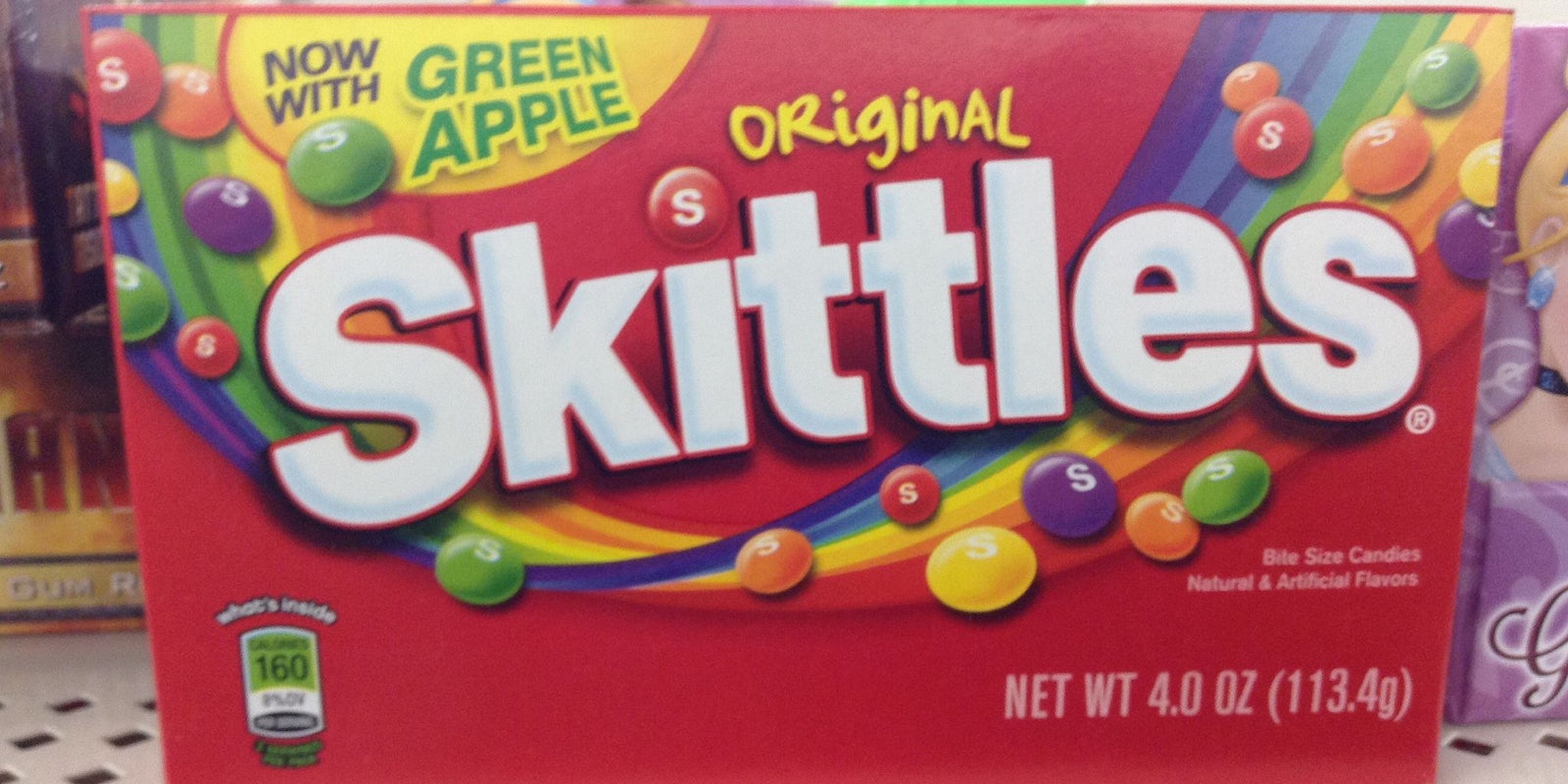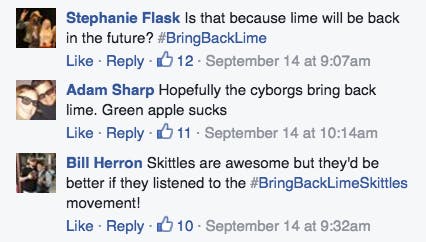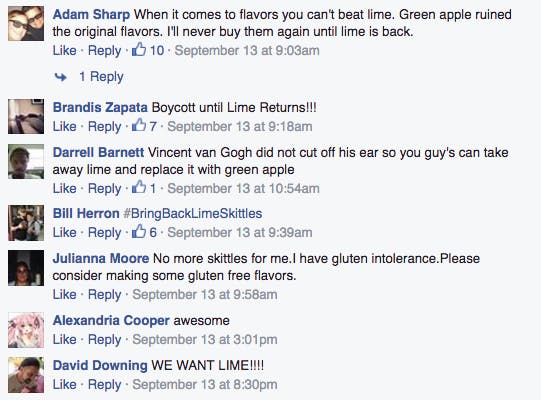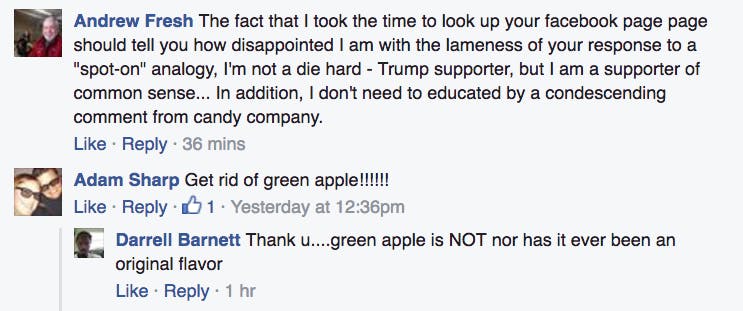Donald Trump Jr. wrenched the election narrative toward candy inanity on Monday night by tweeting an anti-refugee meme that rested on a totally germane comparison to poisonous Skittles. Presumably, this was meant to deflect from his scandalous, oft-denied relationship with Pepe the Frog.
This image says it all. Let’s end the politically correct agenda that doesn’t put America first. #trump2016 pic.twitter.com/9fHwog7ssN
— Donald Trump Jr. (@DonaldJTrumpJr) September 19, 2016
This tasty bit of rhetoric ignited Twitter, with the left helpfully pointing out that refugees aren’t Skittles as the right tried for the first time since 6th-grade English class to explain what a “simile” is and both sides noted that the idiotic analogy seems to have originated with some women comparing the opposite gender to a bag of M&Ms in which 10 percent are poisoned.
#NotAllMen? Imagine a bowl of M&Ms, 10% are poisoned. Go ahead, eat a handful. Not all M&Ms are poison. #YesAllWomen pic.twitter.com/6VFMxWdhuf
— Janina Sjöholm (@RowanLake99) May 28, 2014
In fact, as the Intercept reported, this concept dates back to at least World War II, when it was invoked by a Nazi propagandist who compared the Jewish people to poisonous mushrooms (he was later hanged at Nuremberg). Truly, though, the idea has roots as old as the Bible.
Now, that’s all very good, smart, and important, but may also obscure the bigger Skittles controversy—the one they don’t want you to talk about. In the wake of the Donald Trump Jr.’s Skittles meme, the Wrigley Americas, the division of Mars Inc. that makes the rainbow candies, delivered a safe and succinct statement on the matter that essentially sidestepped politics.
A rep for @Skittles gives me their response to @DonaldJTrumpJr pic.twitter.com/OmkJQkIqug
— Seth Abramovitch (@SethAbramovitch) September 20, 2016
Why so hesitant to jump into the fray? Perhaps because the organization is scared that the focus will turn to a possibly more contentious issue.
That’s right: Americans may be ambivalent about Syrians entering the country as they flee civil war in their homeland, but these same patriots are fiercely united against the green apple-flavored Skittles, first introduced in 2013 as a replacement for beloved lime Skittles. See for yourself:
https://twitter.com/Jaquandor/status/778312708697489408
Look, I think we can all agree the real crime here happened the day Skittles changed the green one from lime to green apple flavor.
— Heather Andersen Shellen (@hshellen) September 20, 2016
https://twitter.com/legalbeagle_esq/status/778305306187091968
If we’re going to do anything about skittles in this country then it better be bringing back lime and kicking all the green apple ones out
— erik (@Era_Era_Erik) September 20, 2016
https://twitter.com/WhoSaid_WhatNow/status/778299309120888832
This chorus of outrage is loud and clear: Eliminate the green apple Skittles, which nobody ever asked for, and immediately reinstate lime. Even on Skittles’ Facebook page, comments about refugees are easily outweighed by those concerned with the 3-year reign of an inferior chemical flavoring.
Wrigley Americas and Skittles can’t take a stand on the immigration issue without risking further ire from those more concerned about a minor product tweak. These Skittles fans have tirelessly campaigned to #BringBackLime for a lot longer than this Clinton-Trump race has lasted, and they’re likely to continue no matter who takes the White House in November. To shed a light on them now would ensure that the Skittles controversy metastasizes into something that takes down the brand itself.
But you won’t hear about this from other websites. Why? Are they in the pocket of Big Skittles—or do they have Skittles in their own pockets? Are they closeted supporters of green apple? Will Skittles executives ever correct their grievous miscalculation? And is anybody selling lime Skittles by the pound these days? (Yes, on Etsy.) As for the other questions, well, we can only hope that the uncorrupted elements of the media keep asking.





